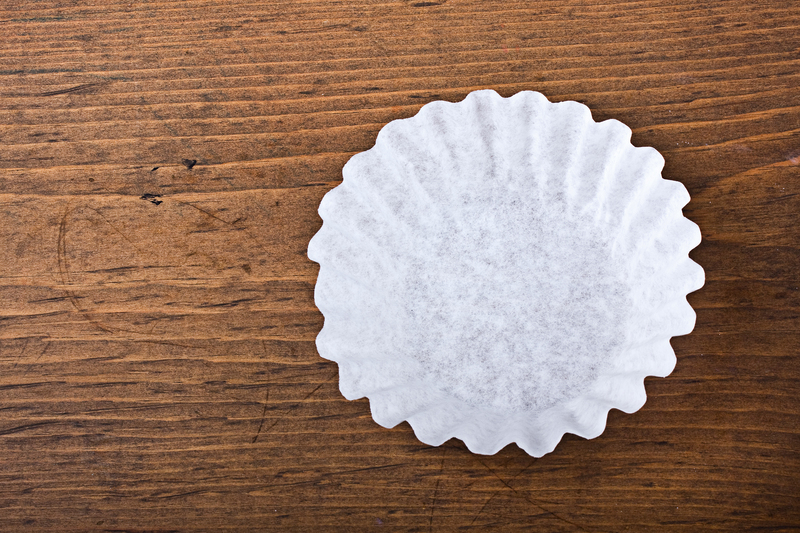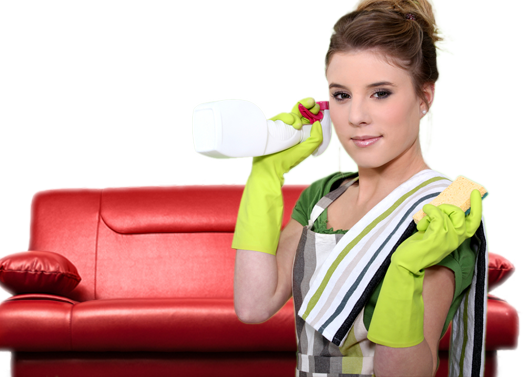Effective Ways to Combat Damp Smell Problems
Posted on 13/08/2025
Effective Ways to Combat Damp Smell Problems
A persistent damp smell in your home or office can be unpleasant, embarrassing, and sometimes even a sign of bigger issues like mold or structural damage. Whether it's a musty odor lurking in your basement, bathroom, or living spaces, combating these damp smell problems is essential for your health and comfort. This comprehensive guide discusses multiple effective methods for eliminating damp odors and preventing them from returning.
Understanding the Causes of Damp Smell
Before exploring the best ways to remove damp odors, it's important to identify their causes. A damp or musty smell generally results from a high moisture environment where mold, mildew, or bacteria can thrive. Recognizing these sources will help you tackle the root of the problem, not just mask the symptoms.
Common Areas Prone to Damp Smell
- Basements: Often poorly ventilated and susceptible to water infiltration.
- Bathrooms: High humidity and frequent water use.
- Kitchens: Cooking, spills, and leaks can lead to moisture build-up.
- Attics: Poor insulation or roof leaks create damp conditions.
- Closets: Insufficient air circulation, especially against exterior walls.
What Causes Damp Smell?
- Leaky pipes or water infiltration from rain
- Poor ventilation
- Condensation on cold surfaces
- High humidity levels
- Mold and mildew growth
Pinpointing the source of the musty odor will make your efforts to eradicate it more effective and long-lasting.

Immediate Actions to Eliminate Damp Smell
If you are dealing with a sudden or severe damp odor problem, immediate measures can help relieve the stink while you work on a long-term solution.
Open Windows and Increase Air Circulation
- Let fresh air in by opening windows and doors.
- Use fans to increase airflow and move stale air out.
- This helps dissipate musty smells and dries out damp areas quickly.
Remove Wet Items
- Take out any wet carpets, towels, or rugs that might be retaining moisture.
- Dry or launder fabrics thoroughly before returning them to the space.
- Wet materials are a breeding ground for mold and can prolong musty odors.
Use Dehumidifiers
- Set up a dehumidifier to extract excess moisture from the air.
- This prevents further dampness and helps dry out walls, floors, and items.
- Many dehumidifiers now have built-in air filters for extra odor control.
Deep Cleaning to Banish Damp Smells for Good
Once you've addressed the immediate moisture, a deep clean is vital for removing persistent musty odors that may have settled into surfaces, furniture, or textiles.
Thoroughly Clean Surfaces
- Wipe down floors, walls, and ceilings with a solution of water and antibacterial cleaner or white vinegar.
- Vinegar neutralizes odors and kills bacteria or mold spores that may be present.
- Don't forget hidden spots -- behind furniture, inside cupboards, or under appliances.
Launder Fabrics and Upholstery
- Wash curtains, pillow covers, removable sofa covers, and bedding on a hot wash if possible.
- For non-washable soft furnishings, sprinkle with baking soda, leave for several hours, then vacuum.
- Consider professional cleaning for carpets and upholstery deeply affected by water damage or mold.
Clean or Replace HVAC Filters
- Dirty air filters trap moisture and odor-causing particles, redistributing musty air.
- Replace or clean HVAC and dehumidifier filters regularly.
- Have air ducts inspected professionally if odors persist.
Address Mold and Mildew
- Scrub visible mold growth with specialized mold removers or a solution of bleach and water.
- Wear a mask and gloves to protect yourself from spores.
- Severe infestations may require professional remediation.
Natural Odor Absorbers
- Place bowls of baking soda or activated charcoal in affected areas to soak up bad smells.
- Coffee grounds and kitty litter are also good at absorbing stubborn odors.
- These methods work well in small spaces like closets or laundry rooms.
Preventing Recurring Damp and Musty Odors
The most effective way to combat damp smell problems is to prevent them from returning. Here are proactive steps you can take to maintain a fresh, healthy indoor environment.
Keep Areas Well-Ventilated
- Install or repair extraction fans in kitchens and bathrooms.
- Open windows daily, especially after showers or cooking.
- Avoid overfilling closets and storage to allow air to circulate.
Monitor and Control Humidity Levels
- Use a hygrometer to monitor indoor humidity; keep levels between 40-60%.
- Run a dehumidifier or air conditioner during humid weather.
- Fix leaks, drips, and condensation issues promptly.
Fix Structural Problems Promptly
- Repair roofing or plumbing leaks immediately to stop water intrusion.
- Seal cracks in walls, floors, and windows where damp might enter.
- Improve external drainage to prevent water pooling around the building.
Maintain Cleanliness
- Vacuum and dust regularly to remove particles that can trap smells.
- Launder clothes, bedding, and towels frequently.
- Declutter damp-prone areas to enhance air flow and cleaning access.
Special Tips for Persistent Damp Smell Issues
Despite your best efforts, some damp odor problems can be notoriously difficult to remove. Consider these additional strategies:
Use Odor Neutralizing Sprays
- Specialized enzyme-based sprays break down odor molecules instead of just covering them up.
- Choose products designed specifically for mildew or pet odors, as they are typically stronger.
Upgrade Insulation
- Improved wall, floor, and attic insulation can prevent condensation and cold spots--common sources of damp and musty smells.
- Insulation also assists in keeping internal temperatures stable, reducing moisture accumulation.
Consider Air Purifiers
- HEPA filter air purifiers effectively capture odor particles and allergens caused by dampness and mold.
- Some units include carbon filters, which are specifically beneficial for removing persistent odors.
Use Silica Gel Packs for Small Spaces
- Silica gel packs are ideal for wardrobes, shoe cabinets, or small storage spaces prone to moisture.
- Replace or recharge them regularly for maximum efficiency.

When to Call a Professional
If your musty odor problems persist even after following these steps, or if you suspect structural dampness or extensive mold, it's wise to consult a professional. Signs you need help include:
- Widespread visible mold growth on walls or ceilings
- Unexplained water stains, bubbling paint, or crumbling plaster
- Persistent or worsening health symptoms like cough, headache, or allergies
A qualified damp specialist can use moisture meters, thermal imaging, and air testing to diagnose hidden issues and recommend tailored solutions.
Conclusion: Fresh, Healthy Spaces Are Possible
No one should have to live or work in a space plagued by damp smells and musty odors. With persistence, attention to moisture control, and a combination of thorough cleaning and prevention, you can banish damp smells for good. Remember to tackle both the immediate symptoms and the underlying causes to achieve a lasting fresh environment. By following these effective ways to combat damp smell problems, you'll enjoy healthier air, peace of mind, and a more welcoming home.
Frequently Asked Questions
- Can I use air fresheners to eliminate damp smells?
While air fresheners can mask odors temporarily, they don't address the root cause. Tackle moisture and mold for lasting results. - Are dehumidifiers expensive to run?
Modern energy-efficient dehumidifiers are affordable to operate and can prevent costly repairs caused by damp over time. - How do I prevent damp smells in storage areas?
Ensure stored items are dry, use airtight containers, and add moisture absorbers like silica gel or charcoal. - What's the best cleaner for mold and mildew?
A mix of bleach and water, or specialized mold cleaners, work best for non-porous surfaces. Always wear protective gear.
Address your damp smell concerns with these expert-approved strategies--and breathe easy in a fresher, healthier space.
Latest Posts
Smart Cleaning Tips: Steam Cleaning and Leather Sofas
Space-Saving Secrets for a Well-Organized Small Wardrobe
The silent balance: Air quality and its impact on wellness





